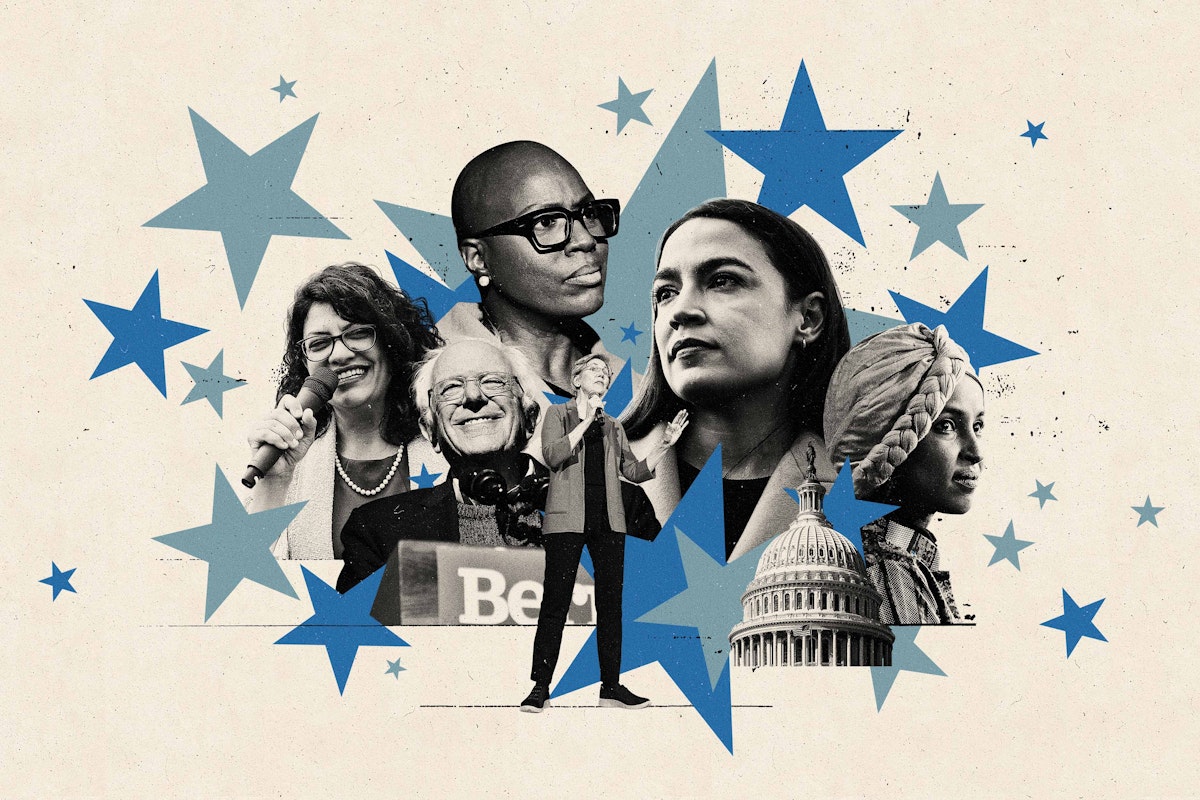
The party infighting sometimes could feel as intense as the battles waged against President Trump. Grim recounts how AOC’s chief of staff, Saikat Chakrabarti, and Pelosi ended up going mano a mano via the press. Over omelets at a San Francisco restaurant, the speaker warned columnist Maureen Dowd that the Squad had been unrealistic and unproductive in opposing a bipartisan government funding and border deal, quipping, “they didn’t have any following. They’re four people and that’s how many votes they got.” The same week, Chakrabarti approved a quote (which AOC did not approve) in The Washington Post alleging that the leadership was “driven by fear” and “unable to lead.” The situation became so heated that, during a caucus meeting, Pelosi sternly lectured staffers who were saying and tweeting things about the leadership without directly confronting her—a statement targeting Chakrabarti. That the meeting took place right around the time a profile of Chakrabarti appeared in The Washington Post didn’t help. Jeffries jumped into the fray by going “nuclear on him,” Grim argues, with a social media post of his own, accusing him of targeting Representative Sharice Davids, who is a Native American. The infighting just multiplied.
After the murder of George Floyd in 2020, Grim shows, many allied organizations became more focused on identity politics and internal feuding than on their original mission. The Sunrise Movement, comprising young environmental activists committed to fighting climate change, was roiled by internal division over race, as the Black Sunrise Caucus denounced the leadership for allowing the movement to “exploit our voices, body, and labor.” Meanwhile, major organizations such as Planned Parenthood and the Sierra Club felt the need to put out statements denouncing their founders for their association with eugenics, to the chagrin of activists who felt that they were redirecting energy away from their common goals. One former executive director of a progressive advocacy organization told Grim that, by the early 2020s, about 90–95 percent of his time had been consumed with “internal strife,” compared to 25–30 percent, “tops,” just a few years earlier.
Grim is critical of younger, Twitter-oriented activists who, he argues, were part of a “general reorientation” away from the kind of structural issues that mattered to Senator Sanders and older leftists. “A sense of powerlessness on the left had nudged the focus away from structural or wide-reaching change,” he writes, “which felt hopelessly beyond reach, and replaced it with an internal target that was more achievable.” As the left purged their own ranks and descended into Zoom room wars, Republicans kept marching along, deregulating, cutting taxes, and building border walls.